
The tax sector has drastically streamlined its apparatus, made efforts to overcome difficulties and create breakthroughs in efficiency, in order to successfully complete the tasks assigned by the Government and the Ministry of Finance - Photo: VGP/HT
Mr. Duong Van Hung - Head of the Organization and Personnel Department (Tax Department) - Ministry of Finance had an interview with the Government Electronic Newspaper about the efforts of the tax sector from the drastic process of streamlining the apparatus, efforts to overcome difficulties to creating breakthrough efficiency, in order to successfully complete the tasks assigned by the Government and the Ministry of Finance.
Streamlining the apparatus: Cutting 85% of the contacts along with transforming the breakthrough management model
Could you please share about the activities of streamlining the organization towards efficiency and effectiveness that the Tax sector has implemented in the past time, and at the same time, how the Tax sector has overcome difficulties to ensure uninterrupted work and to perform well the assigned tasks?
Mr. Duong Van Hung: Implementing Resolution 18-NQ/TW, the Tax sector has undergone two large-scale organizational reform phases. In the first phase (2017-2021), the sector pioneered in focusing on cutting down administrative units, reducing from thousands of units to 63 tax departments, 413 branches and nearly 2,900 tax teams.
Continuing that success, closely following the direction of the Party and State leaders to streamline the apparatus, not only reducing the number of focal points but also improving the operational mechanism to carry out tasks, from the end of 2024 to now, the Tax sector has made a stronger transformation by eliminating the General Department model, minimizing focal points, merging regional branches, and rearranging tax teams.
According to the organizational model, the Tax sector has been streamlined from more than 4,000 units to more than 600 units, transforming from the model of "tax management by function, combined with subjects" to "management by subjects, combined with management by function". This result is a clear demonstration of the political determination and efforts of the entire sector in realizing the major policy of the Party and State on streamlining the apparatus and innovating public administration.
It is not simply a merger and reorganization, but a major shift to improve the effectiveness and efficiency of the tax system, create conditions for each officer to promote their capacity, and gradually modernize the way they serve people and businesses. This is not only a long-term strategic requirement but also an urgent requirement in the process of administrative reform, public finance reform and promoting national digital transformation.
However, the process of reorganizing the apparatus is not without certain difficulties and obstacles. The sharp reduction in the number of management units - thereby posing no small pressure on reorganizing personnel, operating procedures, allocating workload and managing a larger area. Meanwhile, human resources do not increase, even reduce; cadres and civil servants in many localities have to move and work far from their place of residence, affecting their daily life and working mentality.
Correctly identifying the reality, the leaders of the Tax Department have directed strongly and unified the whole industry to thoroughly implement the motto: Streamline but not let the operating apparatus be interrupted. Streamline personnel but must increase work efficiency, change the organizational model but still maintain discipline, responsibility and service quality.

Mr. Duong Van Hung - Head of the Organization and Personnel Department (Tax Department) - Ministry of Finance - Photo: VGP/HT
To support civil servants to work with peace of mind, many tax agencies have proactively coordinated with local authorities to create accommodation conditions, improve facilities, and arrange public housing at the workplace for officials working far away. These are practical actions, demonstrating the humane spirit and close concern of the industry for workers.
Along with the organizational structure, we also conduct training and retraining of staff according to new job positions, improve management skills, use information technology (IT)... It can be said that, thanks to the drastic and synchronous participation from the Central to local levels, the streamlining of the tax sector's organization not only achieved the goal in terms of organizational form, but also created positive changes in the quality of operations, creating a solid foundation for the successful implementation of financial and budgetary tasks assigned by the Party, State and people.
Budget revenue increased by 34%: Leverage from reform and flexible policies
Could you please tell us about the remarkable results that the Tax sector has achieved in recent times, and what are the reasons?
Mr. Duong Van Hung: The reorganization of the tax sector is not only a formal reform, but also has a positive impact on the quality of management and budget collection. Although the economy is still facing many pressures and adverse impacts from the outside, the tax sector has achieved outstanding results in the first quarter of 2025.
By the end of March 2025, the total budget revenue managed by the Tax Department reached VND 656,873 billion, equal to 38.2% of the estimate and increased by 34% over the same period last year. Notably, 12/19 revenue items reached over 30% of the estimate, 53/63 localities had growth, showing the effectiveness of close management and administration from the central to local levels.
This result is the result of many factors: the Government's strong direction, the Ministry of Finance's flexible fiscal policy, the recovery of businesses and the efforts of the people themselves. In particular, the Prime Minister's Official Dispatch No. 124/CD-TTg on removing obstacles in investment, planning, site clearance...
Not stopping there, the tax sector has promoted automation, reformed administrative procedures, and increased the efficiency of electronic services such as tax refunds, tax payments, and electronic invoices. Tax collection management continues to be strengthened, especially in areas with much room for growth such as e-commerce, digital platforms, food and beverage services, and mining.
Tax debt enforcement has also been vigorously implemented, recovering more than VND 22,000 billion in tax debt in the first quarter. In total, by April 9, 2025, the industry had collected VND 689,694 billion - equivalent to 40.1% of the annual estimate, creating a solid foundation for the task of collecting the whole year's budget.
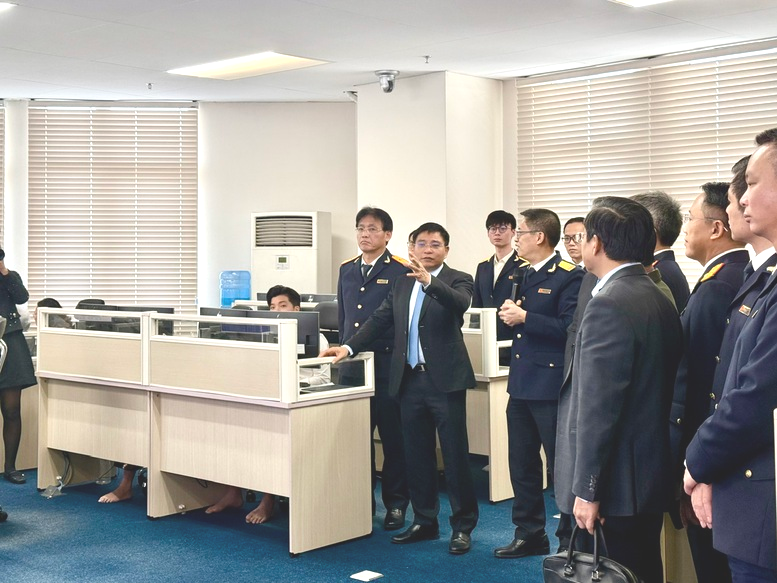
Minister of Finance Nguyen Van Thang visited and directed at the Information Technology Monitoring Center of the Tax Department (Ministry of Finance)
Determined to effectively implement strategic solutions for tax sector development
In the coming time, what solutions does the Tax sector have to continue promoting good results in personnel organization work, overcoming difficulties to contribute to the good implementation of assigned tasks?
Mr. Duong Van Hung: 2025 is a pivotal year, of special importance in implementing the socio-economic development goals for the 2021-2025 period. With the goal of achieving GDP growth of 8%, the tasks of budget collection, administrative reform and modernization of the tax sector pose increasingly high requirements, requiring the entire sector to make outstanding efforts, take drastic, synchronous and creative actions.
In order for the new organizational model to operate effectively and substantially in accordance with the direction of the Government, the Ministry of Finance and the tax sector clearly define the motto of action "Refined - Lean - Strong - Effective - Effective - Efficient", along with the spirit of innovative management thinking and clear strategic orientation, in which the tax sector will focus on implementing 7 key groups of solutions.
Firstly, quickly stabilize the organizational structure according to the new model after the arrangement, ensuring that all business activities operate smoothly, without interruption, and coordinate smoothly in handling work, improving the efficiency of tax management in each locality.
Second, strengthen measures to manage revenue collection, prevent revenue loss, recover arrears and tax fraud. Each tax unit must proactively monitor developments, strictly handle tax evasion and abuse of policies to misappropriate the budget, ensuring the principles of correct, full and timely collection.
Third, continue to effectively implement specialized projects such as preventing revenue loss in e-commerce, real estate business, accommodation services, golf courses, etc. Thereby, closing policy gaps, improving risk management efficiency and increasing budget revenue in a sustainable manner.
Fourth, accelerate the digital transformation of the tax sector towards modernity, integration, synchronization and transparency. The focus is on restructuring the IT system, connecting with relevant ministries, sectors and units. At the same time, the sector will research and apply AI technology, Big Data to automate management processes, reduce manual work, increase efficiency and accuracy. Continue to upgrade and improve electronic tax services to best serve people and businesses (such as tax declaration, tax payment, electronic tax refund, electronic invoices).
At the conference summarizing tax work in 2024 and deploying tax work tasks in 2025, Minister of Finance Nguyen Van Thang emphasized that digital transformation and centralized data processing play an important role, especially in the context of increasing tax management objects and increasingly streamlined apparatus. Therefore, in 2025, the tax sector needs to continue to focus on accelerating the application of artificial intelligence (AI) and processing of large databases (Big Data). Accelerate the implementation of automatic personal income tax refunds; automate debt management; apply AI in inspection and examination; analyze e-commerce data as well as manage invoices to meet the requirements of digital economic development, digital society, digital government and international integration.
Fifth, perfecting tax management institutions, amending business processes, enhancing transparency, and minimizing bottlenecks in management and service.
Sixth, continue to promote administrative procedure reform, improve the quality of taxpayer services, and enhance the satisfaction of people and businesses. The Tax sector is committed to accompanying businesses, creating a favorable, fair, and transparent environment, thereby enhancing social trust and economic competitiveness.
Seventh, tighten discipline and administrative order; build a team of tax officials who are truly "integrity - discipline - professionalism - modernity - friendliness", focusing on improving the quality of human resources.
Notably, the tax sector will implement a mechanism to evaluate work performance based on quantitative, transparent and fair criteria; promote the spirit of ownership, promote capacity, responsibility and creativity in each working position.
We are deeply aware that, in order to fulfill our responsibilities to the Party, the State and the People, we cannot rely on short-term solutions, but need a long-term development strategy, associated with institutional, human and technological transformation. With the spirit of solidarity, discipline and the desire to contribute, the tax sector will continue to promote its glorious tradition, overcome all difficulties and challenges, and firmly step on the journey of modernization and integration, contributing to consolidating a strong national financial foundation, accompanying the country into an era of strong and prosperous development.
Thank you very much!
Performed by Huy Thang
Source: https://baochinhphu.vn/bai-3-tinh-gon-bo-may-nganh-thue-hanh-trinh-cai-cach-quyet-liet-va-hieu-qua-102250413154423876.htm


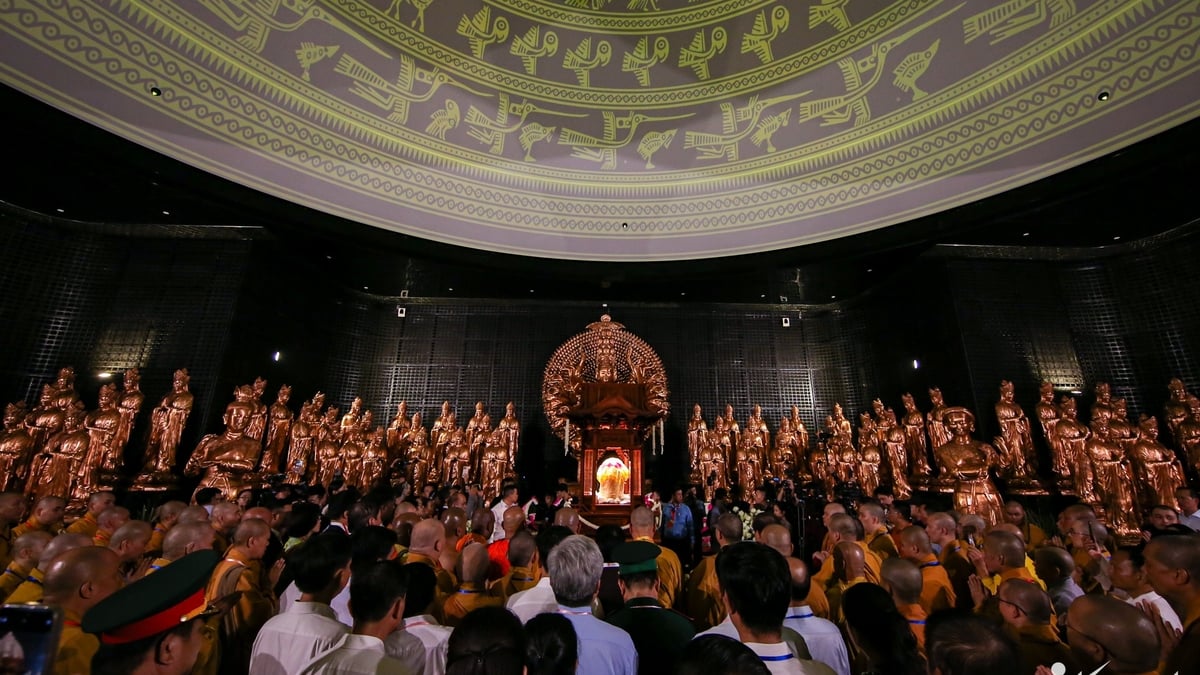

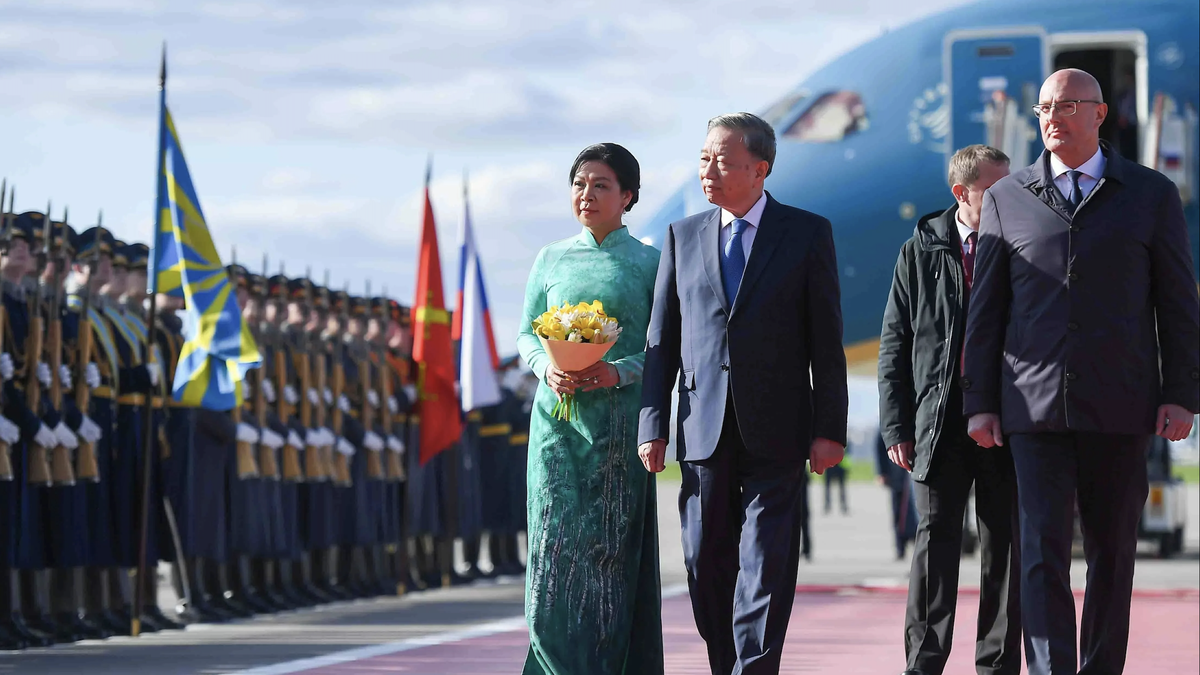



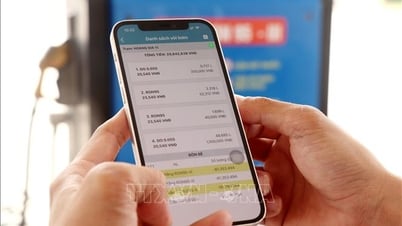


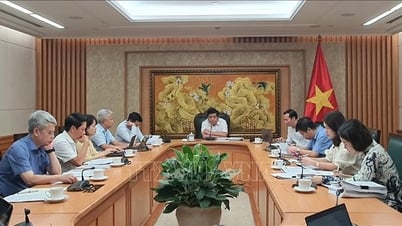












![[Photo] General Secretary To Lam begins official visit to Russia and attends the 80th Anniversary of Victory over Fascism](https://vphoto.vietnam.vn/thumb/1200x675/vietnam/resource/IMAGE/2025/5/8/5d2566d7f67d4a1e9b88bc677831ec9d)

















































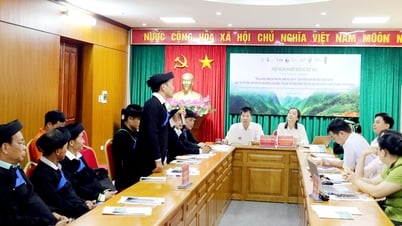



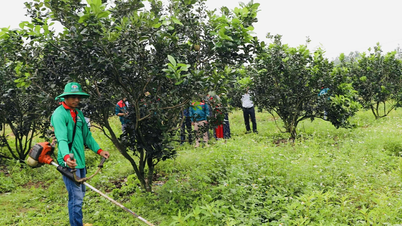
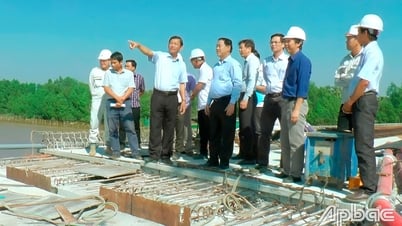

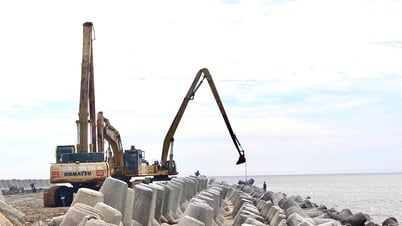













Comment (0)